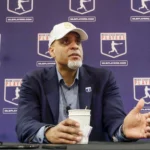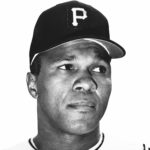MLB letting down retired players:
It’s probably a safe bet that even the most die-hard baseball fan in Kansas City doesn’t remember pitcher Kenny Wright.
Wright, who first toed the rubber with the Royals in 1970, passed away in 2017. At a time when a vested retiree can earn up to $225,000, Wright’s widow, Jilda, doesn’t receive a plug nickel from Major League Baseball.
Wright, who played with the Royals and the New York Yankees, was one of those unsung players you rarely hear about except in a “where are they now?” feature. So are former Royals catcher Dennis Ray Paepke, outfielder Joe Zdeb, and pitcher Monty Montgomery.
You read that correctly. If the Royals call you up on Aug. 15 and you stay on the team’s active roster through Oct. 1, and that’s all the service time you ever have in “the show,” you’re going to get a guaranteed pension at the age of 62 that’s currently valued at $3,589. Even though Paepke, Montgomery, and Zdeb had way more days of service than you, they’re on the outside looking in.
Why is that? The MLBPA did not request retroactive coverage for all the men like Wright who, at the time of his death, was working two jobs — he was a courier at a hospital in Pensacola, Florida, as well as a manager at the Warrington Aid Center — just to make ends meet.
In April 2011, the league and union tried to remedy the problem by giving the men like Wright $625 for every 43 game days they accrued on an active MLB roster, up to $10,000. That meant $8,125 for Wright … though, after taxes, all he netted for having played the sport he loved was $5,900 a year.
The bigger issue is that, unlike a real pension, when the man passes, the payment passes with him.
So Jilda Wright now gets squat.
“I hope a fair-minded person in the right position will see the true plight of these men and their widows,” Wright recently told me. “The mindset seems to be these men will all be gone before too long and good riddance.”
The MLBPA is loath to divvy up any more of the pie. Although the union’s welfare and benefits fund is currently valued at more than $3.5 billion, MLBPA Executive Director Tony Clark, who was born in Newton, Kansas, has never commented about these non-vested retirees, many of whom are filing for bankruptcy at advanced ages and seeing banks foreclose on their homes. Some are so sickly and poor that they cannot afford adequate health care coverage.
Unions are supposed to help hard-working women and men get a fair shake in life. But Clark doesn’t seem to want to help anyone but himself. He receives an MLB pension and a reported annual salary of more than $2.1 million, including benefits.
While that’s good for the union leader who will reportedly remain in that plum role through at least 2022, because it gives his wife and children financial security, I often wonder how Clark would feel if the shoe was on the other foot and his own spouse was in Jilda Wright’s position.
Maybe if he asks himself that question, things would be a whole lot better for Jilda Wright.
Douglas J. Gladstone is a freelance magazine writer who authored “A Bitter Cup of Coffee: How MLB & the Players’ Association Threw 874 Retirees a Curve.” His website is www.gladstonewriter.com.

Author Profile
Latest entries
 MLBDecember 14, 2022A Tale of Two Wyomingites
MLBDecember 14, 2022A Tale of Two Wyomingites MLBJuly 2, 2022Asking for Accountability From a POC Isn’t Bigotry
MLBJuly 2, 2022Asking for Accountability From a POC Isn’t Bigotry MLBFebruary 5, 2022A Valentine’s Appeal to Tony Clark, Executive Director, Major League Baseball Players’ Association
MLBFebruary 5, 2022A Valentine’s Appeal to Tony Clark, Executive Director, Major League Baseball Players’ Association MLBJanuary 19, 2022MLB: Pre-1980 Players Without a Pension List Now Stands at 525
MLBJanuary 19, 2022MLB: Pre-1980 Players Without a Pension List Now Stands at 525
